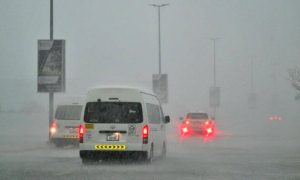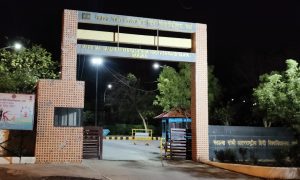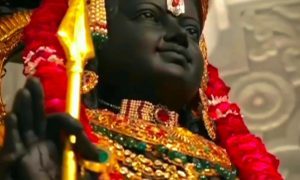The Reserve Bank of India has ordered Punjab and Maharashtra Co-operative (PMC) Bank not to do any business for six months and capped depositor withdrawals at Rs 1,000, throwing the lives of thousands of traders, self-employed and daily wage earners into disarray. The regulator has also appointed an administrator for the bank.
Defaults appear to have surged in the past six months amid tight economic conditions and some lumpy loans to real estate companies located in the financial capital that turned sour, making it difficult for the bank to meet its commitments, two people familiar with the matter said.
The sudden freeze ahead of the festival season is set to upset calculations of customers and deal a big blow to a state that is heavily reliant on the cooperative bank structure to service millions of customers in its villages. The development comes at an awkward time for the state government in Maharashtra, the BJP, and other political parties such as the NCP and the Congress, which are known to have a strong support base among the customers of cooperative banks. The state goes to polls in October.
“Depositors will be allowed to withdraw a sum not exceeding Rs 1,000 of the total balance in every savings bank account or current account,” RBI said in a statement.
“Without prior approval in writing from the Reserve Bank, (PMC Bank) will also not be able to grant or renew any loans and advances, make any investment, incur any liability including borrowal of funds and acceptance of fresh deposits,” the statement said.
PMC’s collapse is unlikely to impact financial markets or other private or public sector banks as co-operative banks have meagre dealings in money markets as they largely depend upon deposits.
Savings of up to Rs 1 lakh is guaranteed by the deposit insurance but anything beyond that would be repaid depending on the recovery under the RBI-appointed administrator.
“I would like to tell the public that there is no need to get panicky because we have DICGC (Deposit Insurance and Credit Guarantee Corporation) cover through which deposits of up to Rs 1lakh are covered,” JB Bhoria, the RBI-appointed administrator told ET Now. “Besides, we have our own assets which are liquid. We are trying our best to sort out the situation. Prima facie there appears to be some NPAs, but I am told that they are all secured by the assets…”
The collapse appears to have been sudden and is shrouded in mystery with the bank management voluntarily approaching the regulator to initiate the action instead of the regulator initiating the process which is the practice.
“Normally, the RBI initiates the action after a regulatory supervision exposes wrongdoing and if it feels that the financials are weak for it to continue,” said a person familiar with operations. “Here, the bank came to the RBI and demanded that it freeze the business so that things could be brought back to order, if at all it could.’’



























Pingback: 카지노사이트
Pingback: easy1up review profit passport
Pingback: taxis milton keynes
Pingback: How To Use Wealthy Affiliate 2020
Pingback: นาโนไฟแนนซ์
Pingback: fish Tank Heater yourfishguide.com
Pingback: fun88.viet
Pingback: poodle puppies for sale near me in usa canada uk australia europe cheap
Pingback: Cam Girls & Porn Stars
Pingback: how do you add transitions on video star
Pingback: sex
Pingback: w88
Pingback: w88
Pingback: Buy Weed Online
Pingback: kalpa steroid
Pingback: พีจีสล็อต/พีจีสล๊อต
Pingback: Regression Testing Services
Pingback: Unicc
Pingback: Triad Tree Removal Tree Service Shannon NC
Pingback: kocioł parowy
Pingback: african sexiest woman alive
Pingback: diamond painting kits
Pingback: پوکر ایرانیان
Pingback: Devops companies
Pingback: Glo Carts
Pingback: 5 Simple Steps To Creating Growth With A Gaming Website
Pingback: ตู้แปลภาษา
Pingback: service virtualization tools
Pingback: buy HK guns USA online
Pingback: Chat Roulette Fille Sexe
Pingback: nova88
Pingback: credit immobilier banque en ligne
Pingback: snuscore de
Pingback: dumps with pin online shop
Pingback: เงินกู้ มีนบุรี